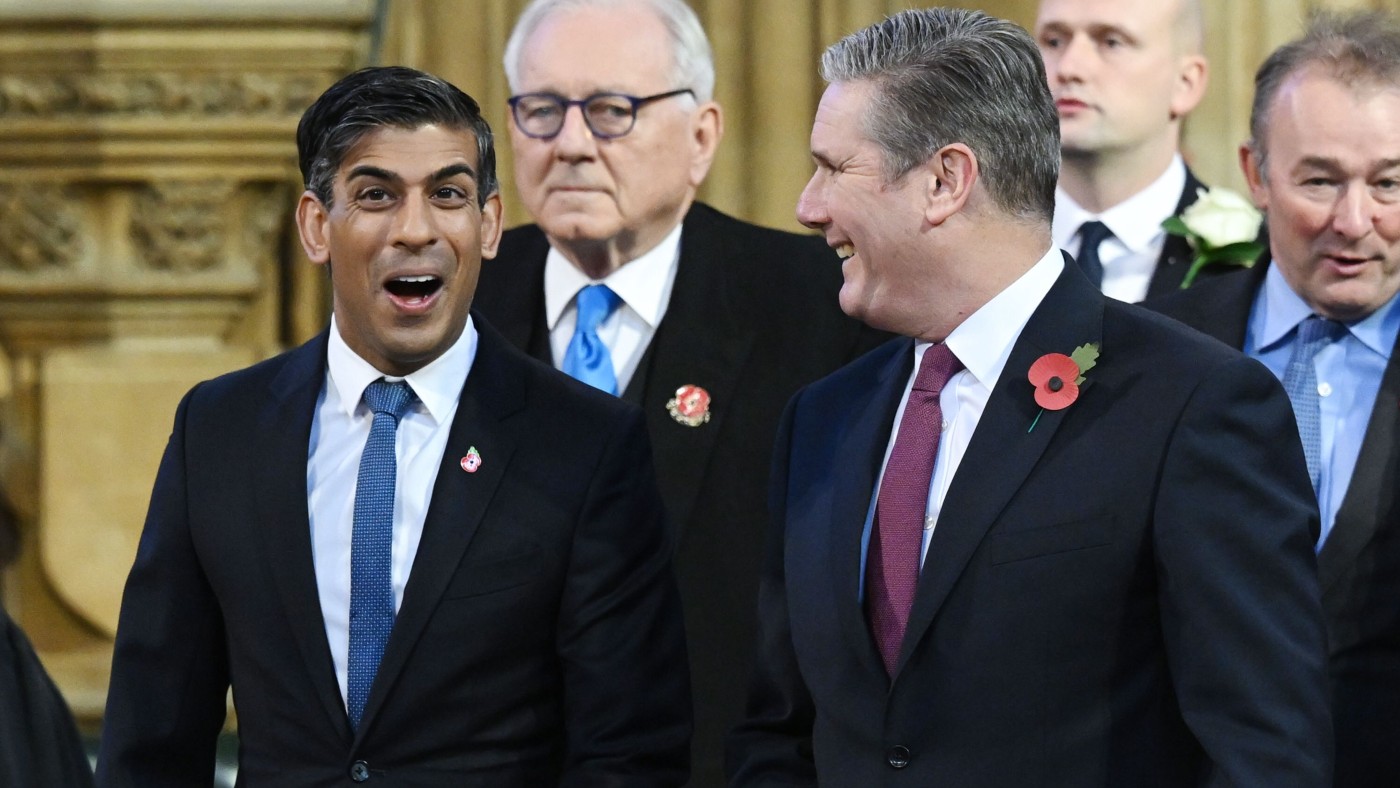'Do not ignore': the political fundraising emails 'littering' your inbox
British voters are being bombarded with emailed pleas for donations and support in the run-up to the next election

A free daily email with the biggest news stories of the day – and the best features from TheWeek.com
You are now subscribed
Your newsletter sign-up was successful
British politics has become "hooked" on "begging emails" with "threatening subject lines", according to experts.
With an election "looming", said Politico's John Johnson, fundraising messages from parties to their supporters "litter Britain's inboxes". But the growing number of digital pleas could "turn genuine supporters off".
When did the trend begin?
Fundraising pleas have been pinged out for almost as long as emails have existed, but a more targeted technique was "pioneered" by Barack Obama, said Johnson, and was "aggressively deployed" by Donald Trump during his presidential campaigning.
The Week
Escape your echo chamber. Get the facts behind the news, plus analysis from multiple perspectives.

Sign up for The Week's Free Newsletters
From our morning news briefing to a weekly Good News Newsletter, get the best of The Week delivered directly to your inbox.
From our morning news briefing to a weekly Good News Newsletter, get the best of The Week delivered directly to your inbox.
Such emails "take many forms", said NPR, but a familiar feature is provocative subject lines. In 2015, Ted Cruz's campaign used the header "Dropping out" for an email which then explained that it was his GOP presidential opponent Bobby Jinadal who had quit the White House race, due to a lack of funds. During the same election, the Hillary Clinton campaign used teasing headers ranging from "Bill wants to meet you" to "dinner?".
Here in the UK, recent subject lines include "They're watching" from Labour, "DO NOT IGNORE" from the Tories' London mayoral candidate Susan Hall, and "I need your full attention" from far-right party Britain First.
"Crucially", said Johnson, emails aimed at "drumming up support" for a political party "benefit from fine tuning" using techniques including "A/B" testing, which allows varying subject lines and content to be sent to different subscribers.
India Thorogood, who led Labour's membership mobilisation push for the 2019 election, told the news site that it was common for up to four versions of the same email to be sent, each with tweaks to the language or images. Analysts then scrutinise data on the emails including the open rates, reading times, and the number and size of resulting donations, to "further hone their tactics", said Johnson.
A free daily email with the biggest news stories of the day – and the best features from TheWeek.com
What are the benefits and risks?
The cash raised by email fundraising can be considerable, with Obama pulling in about $500 million during his 2012 re-election bid.
There are also "PR and mobilisation benefits beyond the balance sheet", said Johnson. "Swathes of small donations" can be "spun to show popular support for a candidate". Jeremy Corbyn raised millions in small donations during his time as Labour leader, "feeding into his team's narrative he represented the many, not the few".
Enlisting new donors can also turn "passing interest into enthusiastic support". Josh Harvey, who has worked on Tory leadership campaigns, told the site that "once someone's spent money on something, they feel automatically, literally, bought into the process".
But while a "cocktail of conversation, guilt and clickbait" can drive donations and engagement "through the roof", said Johnson, fundraising emails can backfire. Emails with misleading subject lines risk annoying voters. And Thorogood "cautions against" guilt-tripping emails, "because they may lead to "long-term disillusionment".
Asking for "too much, too often" is another risk, said The Washington Post. In the years after he lost the presidency to Joe Biden, Trump sent "so many" emails and text messages asking for money that Republican consultants warned his mailing lists could become "useless". Last year, Trump and his fundraising committees raised $51 million from "small-dollar donors", down from a record $626.6 million in 2020 and $119 million in 2019.
Chas Newkey-Burden has been part of The Week Digital team for more than a decade and a journalist for 25 years, starting out on the irreverent football weekly 90 Minutes, before moving to lifestyle magazines Loaded and Attitude. He was a columnist for The Big Issue and landed a world exclusive with David Beckham that became the weekly magazine’s bestselling issue. He now writes regularly for The Guardian, The Telegraph, The Independent, Metro, FourFourTwo and the i new site. He is also the author of a number of non-fiction books.